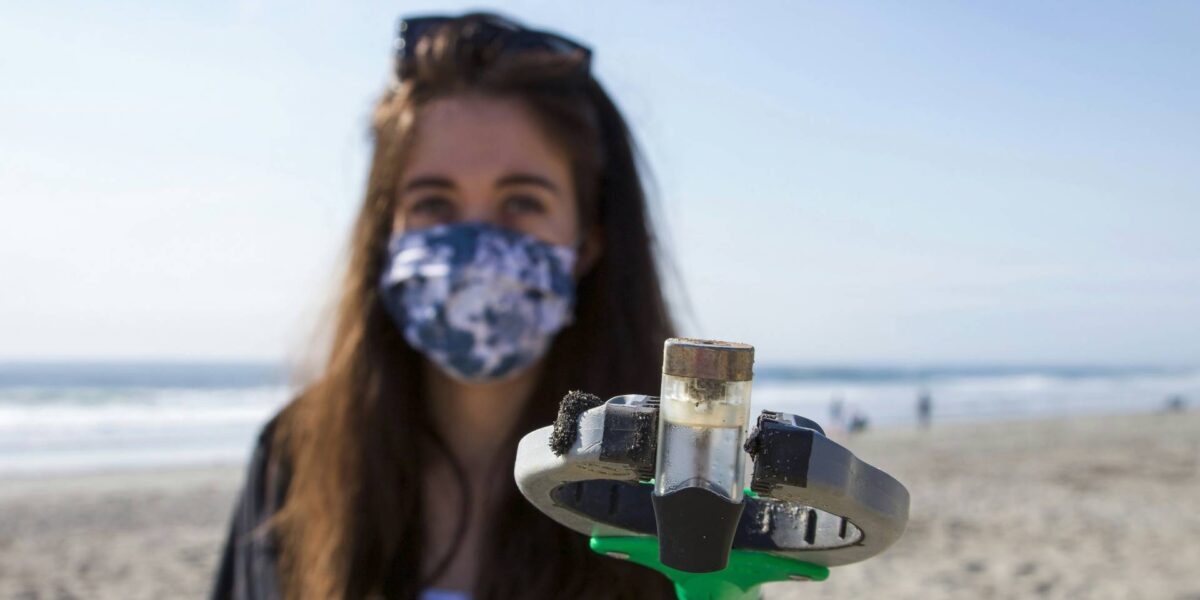Microplastics, soft plastics, burning plastics, plastics in the ocean, plastics in our brains, livers, kidneys, joints, reproductive organs, bones, blood… Plastic, a byproduct of the oil and gas industry, is everywhere, in various forms.
Like oil and gas, plastic has provided us with many conveniences and cost savings. It’s lightweight, strong yet flexible, corrosion-resistant, waterproof and can be moulded into any shape and made clear or any colour. That makes it useful for everything from liquid containers to building materials to medical supplies. It’s in just about everything.
But its ubiquity and the harms it causes have undermined its utility.
Plastic doesn’t really biodegrade. It breaks down into smaller and smaller particles until it’s referred to as “microplastic” or “nanoplastic” — ultimately invisible.
Some plastics can be recycled, but not indefinitely, and recycling is energy-intensive. Most of it isn’t recycled but ends up in landfills, incinerators, waterways and oceans. Massive amounts are used for single-use items, and despite municipal and other programs and regulations to discourage single-use plastics, we’re using more every day. Soft plastics, such as food bags and packaging, are especially common.
When it’s burned — which it often is — it creates a toxic polluting mix of fine particulate matter, carbon monoxide, hydrogen cyanide, dioxins and more, which causes heart disease, respiratory disorders and neurological problems and around seven million deaths a year, the Washington Post reports. Heavy metals, dioxins and other pollutants in the ash contaminate soil and groundwater and disrupt food chains.
It’s also a significant source of greenhouse gas emissions, much of them generated when plastics are produced from fossil fuels.
But it’s not just air, water, soil and food that are being contaminated. Microplastics, tiny specks smaller than five millimetres in diameter, are now being found in human organs, including our brains, lungs and reproductive organs. Their presence can cause cell damage, inflammation, cardiovascular disease, fertility issues, cancer, immune system disruption and cognitive issues.
One study found brains are accumulating as much as 10 or 20 times more than other organs. The Guardian reports that 24 brain samples collected in early 2024 measured on average about 0.5 per cent plastic by weight, and that people who died with dementia or Alzheimer’s disease had 10 times more plastic in their brains than people without those health issues. Quantities found in brains in 2024 were also 50 per cent higher than in samples dating to 2016.
“You can draw a line — it’s increasing over time. It’s consistent with what you’re seeing in the environment,” said study lead author Matthew Campen, from the University of New Mexico.
Plastic is also being found increasingly in animal brains.
What’s particularly astounding is that most plastic only came into our lives over the past 75 or so years. When I was growing up, plastic bags and packaging were unheard of.
We can all limit exposure to plastic contamination: avoid microwaving food in plastic containers, choose tap water if possible over bottled, keep dust at bay (it contains plastic particles), eat less meat and processed foods (which can contain plastic particles) and avoid excessive packaging.
But plastic is a byproduct of the oil and gas industry and has become a profit generator in that sector as the world shifts to cleaner energy. Just as industry is pushing fossil gas (misleadingly called “natural” gas but mostly the potent greenhouse gas methane, and most often fracked), it’s also pushing more plastic.
We can’t trust industry or “markets” to do the right thing. That’s why it’s critical to secure local, national and international regulations to stop plastic from poisoning our biosphere and plasticizing us.
Canada has made a good start by banning some non-essential, single-use plastic items, and by hosting international negotiations this year in Ottawa around an international treaty to set limits on global plastic production. Those negotiations — which will address plastic’s full life cycle, including production, design and disposal — are expected to be finalized later this year in South Korea. But the fossil fuel industry is pushing back.
Enough is enough. We don’t need excessive packaging or single-use items. We don’t need disposable plastic trinkets or straws. Plastic pollution is a growing global problem. It affects our ecosystems and our bodies.
Let’s push our government to take a strong stand to limit global plastic production.
David Suzuki is a scientist, broadcaster, author and co-founder of the David Suzuki Foundation. Written with David Suzuki Foundation Senior Writer and Editor Ian Hanington. Learn more at davidsuzuki.org.



